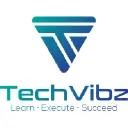
Job Description: DevOps Engineer
About Hyno:
Hyno Technologies is a unique blend of top-notch designers and world-class developers for new-age product development. Within the last 2 years we have collaborated with 32 young startups from India, US and EU to to find the optimum solution to their complex business problems. We have helped them to address the issues of scalability and optimisation through the use of technology and minimal cost. To us any new challenge is an opportunity.
As part of Hyno’s expansion plans,Hyno, in partnership with Sparity, is seeking an experienced DevOps Engineer to join our dynamic team. As a DevOps Engineer, you will play a crucial role in enhancing our software development processes, optimising system infrastructure, and ensuring the seamless deployment of applications. If you are passionate about leveraging cutting-edge technologies to drive efficiency, reliability, and scalability in software development, this is the perfect opportunity for you.
Position: DevOps Engineer
Experience: 5-7 years
Responsibilities:
- Collaborate with cross-functional teams to design, develop, and implement CI/CD pipelines for automated application deployment, testing, and monitoring.
- Manage and maintain cloud infrastructure using tools like AWS, Azure, or GCP, ensuring scalability, security, and high availability.
- Develop and implement infrastructure as code (IaC) using tools like Terraform or CloudFormation to automate the provisioning and management of resources.
- Constantly evaluate continuous integration and continuous deployment solutions as the industry evolves, and develop standardised best practices.
- Work closely with development teams to provide support and guidance in building applications with a focus on scalability, reliability, and security.
- Perform regular security assessments and implement best practices for securing the entire development and deployment pipeline.
- Troubleshoot and resolve issues related to infrastructure, deployment, and application performance in a timely manner.
- Follow regulatory and ISO 13485 requirements.
- Stay updated with industry trends and emerging technologies in the DevOps and cloud space, and proactively suggest improvements to current processes.
Requirements:
- Bachelor's degree in Computer Science, Engineering, or related field (or equivalent work experience).
- Minimum of 5 years of hands-on experience in DevOps, system administration, or related roles.
- Solid understanding of containerization technologies (Docker, Kubernetes) and orchestration tools
- Strong experience with cloud platforms such as AWS, Azure, or GCP, including services like ECS, S3, RDS, and more.
- Proficiency in at least one programming/scripting language such as Python, Bash, or PowerShell..
- Demonstrated experience in building and maintaining CI/CD pipelines using tools like Jenkins, GitLab CI/CD, or CircleCI.
- Familiarity with configuration management tools like Ansible, Puppet, or Chef.
- Experience with container (Docker, ECS, EKS), serverless (Lambda), and Virtual Machine (VMware, KVM) architectures.
- Experience with infrastructure as code (IaC) tools like Terraform, CloudFormation, or Pulumi.
- Strong knowledge of monitoring and logging tools such as Prometheus, ELK stack, or Splunk.
- Excellent problem-solving skills and the ability to work effectively in a fast-paced, collaborative environment.
- Strong communication skills and the ability to work independently as well as in a team.
Nice to Have:
- Relevant certifications such as AWS Certified DevOps Engineer, Azure DevOps Engineer, Certified Kubernetes Administrator (CKA), etc.
- Experience with microservices architecture and serverless computing.
Soft Skills:
- Excellent written and verbal communication skills.
- Ability to manage conflict effectively.
- Ability to adapt and be productive in a dynamic environment.
- Strong communication and collaboration skills supporting multiple stakeholders and business operations.
- Self-starter, self-managed, and a team player.
Join us in shaping the future of DevOps at Hyno in collaboration with Sparity. If you are a highly motivated and skilled DevOps Engineer, eager to make an impact in a remote setting, we'd love to hear from you.

About Hyno Technologies
About
Connect with the team
Similar jobs
About Kanerika:
Kanerika Inc. is a premier global software products and services firm that specializes in providing innovative solutions and services for data-driven enterprises. Our focus is to empower businesses to achieve their digital transformation goals and maximize their business impact through the effective use of data and AI.
We leverage cutting-edge technologies in data analytics, data governance, AI-ML, GenAI/ LLM and industry best practices to deliver custom solutions that help organizations optimize their operations, enhance customer experiences, and drive growth.
Awards and Recognitions:
Kanerika has won several awards over the years, including:
1. Best Place to Work 2023 by Great Place to Work®
2. Top 10 Most Recommended RPA Start-Ups in 2022 by RPA Today
3. NASSCOM Emerge 50 Award in 2014
4. Frost & Sullivan India 2021 Technology Innovation Award for its Kompass composable solution architecture
5. Kanerika has also been recognized for its commitment to customer privacy and data security, having achieved ISO 27701, SOC2, and GDPR compliances.
Working for us:
Kanerika is rated 4.6/5 on Glassdoor, for many good reasons. We truly value our employees' growth, well-being, and diversity, and people’s experiences bear this out. At Kanerika, we offer a host of enticing benefits that create an environment where you can thrive both personally and professionally. From our inclusive hiring practices and mandatory training on creating a safe work environment to our flexible working hours and generous parental leave, we prioritize the well-being and success of our employees.
Our commitment to professional development is evident through our mentorship programs, job training initiatives, and support for professional certifications. Additionally, our company-sponsored outings and various time-off benefits ensure a healthy work-life balance. Join us at Kanerika and become part of a vibrant and diverse community where your talents are recognized, your growth is nurtured, and your contributions make a real impact. See the benefits section below for the perks you’ll get while working for Kanerika.
About the role:
As a DevOps Engineer, you will play a critical role in bridging the gap between development, operations, and security teams to enable fast, secure, and reliable software delivery. With 5+ years of hands-on experience, the engineer is responsible for designing, implementing, and maintaining scalable, automated, and cloud-native infrastructure solutions.
Key Responsibilities:
- 5+ years of hands-on experience in DevOps or Cloud Engineering roles.
- Strong expertise in at least one public cloud provider (AWS / Azure / GCP).
- Proficiency in Infrastructure as Code (IaC) tools (Terraform, Ansible, Pulumi, or CloudFormation).
- Solid experience with Kubernetes and containerized applications.
- Strong knowledge of CI/CD tools (Jenkins, GitHub Actions, GitLab CI, Azure DevOps, ArgoCD).
- Scripting/programming skills in Python, Shell, or Go for automation.
- Hands-on experience with monitoring, logging, and incident management.
- Familiarity with security practices in DevOps (secrets management, IAM, vulnerability scanning).
Employee Benefits:
1. Culture:
- Open Door Policy: Encourages open communication and accessibility to management.
- Open Office Floor Plan: Fosters a collaborative and interactive work environment.
- Flexible Working Hours: Allows employees to have flexibility in their work schedules.
- Employee Referral Bonus: Rewards employees for referring qualified candidates.
- Appraisal Process Twice a Year: Provides regular performance evaluations and feedback.
2. Inclusivity and Diversity:
- Hiring practices that promote diversity: Ensures a diverse and inclusive workforce.
- Mandatory POSH training: Promotes a safe and respectful work environment.
3. Health Insurance and Wellness Benefits:
- GMC and Term Insurance: Offers medical coverage and financial protection.
- Health Insurance: Provides coverage for medical expenses.
- Disability Insurance: Offers financial support in case of disability.
4. Child Care & Parental Leave Benefits:
- Company-sponsored family events: Creates opportunities for employees and their families to bond.
- Generous Parental Leave: Allows parents to take time off after the birth or adoption of a child.
- Family Medical Leave: Offers leave for employees to take care of family members' medical needs.
5. Perks and Time-Off Benefits:
- Company-sponsored outings: Organizes recreational activities for employees.
- Gratuity: Provides a monetary benefit as a token of appreciation.
- Provident Fund: Helps employees save for retirement.
- Generous PTO: Offers more than the industry standard for paid time off.
- Paid sick days: Allows employees to take paid time off when they are unwell.
- Paid holidays: Gives employees paid time off for designated holidays.
- Bereavement Leave: Provides time off for employees to grieve the loss of a loved one.
6. Professional Development Benefits:
- L&D with FLEX- Enterprise Learning Repository: Provides access to a learning repository for professional development.
- Mentorship Program: Offers guidance and support from experienced professionals.
- Job Training: Provides training to enhance job-related skills.
- Professional Certification Reimbursements: Assists employees in obtaining professional certifications.
- Promote from Within: Encourages internal growth and advancement opportunities.
Sr.DevOps Engineer (5 to 8 yrs. Exp.)
Location: Ahmedabad
- Strong Experience in Infrastructure provisioning in cloud using Terraform & AWS CloudFormation Templates.
- Strong Experience in Serverless Containerization technologies such as Kubernetes, Docker etc.
- Strong Experience in Jenkins & AWS Native CI/CD implementation using code
- Strong Experience in Cloud operational automation using Python, Shell script, AWS CLI, AWS Systems Manager, AWS Lamnda, etc.
- Day to Day AWS Cloud administration tasks
- Strong Experience in Configuration management using Ansible and PowerShell.
- Strong Experience in Linux and any scripting language must required.
- Knowledge of Monitoring tool will be added advantage.
- Understanding of DevOps practices which involves Continuous Integration, Delivery and Deployment.
- Hands on with application deployment process
Key Skills: AWS, terraform, Serverless, Jenkins,Devops,CI/CD,Python,CLI,Linux,Git,Kubernetes
Role: Software Developer
Industry Type: IT-Software, Software Services
FunctionalArea:ITSoftware- Application Programming, Maintenance
Employment Type: Full Time, Permanent
Education: Any computer graduate.
Salary: Best in Industry.Senior DevOps Engineer
Experience: Minimum 5 years of relevant experience
Key Responsibilities:
• Hands-on experience with AWS tools and CI/CD pipelines, Redhat Linux
• Strong expertise in DevOps practices and principles
• Experience with infrastructure automation and configuration management
• Excellent problem-solving skills and attention to detail
Nice to Have:
• Redhat certification
Key Responsibilities:
- Develop and Maintain CI/CD Pipelines: Design, implement, and manage CI/CD pipelines using GitOps practices.
- Kubernetes Management: Deploy, manage, and troubleshoot Kubernetes clusters to ensure high availability and scalability of applications.
- Cloud Infrastructure: Design, deploy, and manage cloud infrastructure on AWS, utilizing services such as EC2, S3, RDS, Lambda, and others.
- Infrastructure as Code: Implement and manage infrastructure using IaC tools like Terraform, CloudFormation, or similar.
- Monitoring and Logging: Set up and manage monitoring, logging, and alerting systems to ensure the health and performance of the infrastructure.
- Automation: Identify and automate repetitive tasks to improve efficiency and reliability.
- Security: Implement security best practices and ensure compliance with industry standards.
- Collaboration: Work closely with development, QA, and operations teams to ensure seamless integration and delivery of products.
Required Skills and Qualifications:
- Experience: 2-5 years of experience in a DevOps role.
- AWS: In-depth knowledge of AWS services and solutions.
- CI/CD Tools: Experience with CI/CD tools such as Jenkins, GitLab CI, CircleCI, or similar.
- GitOps Expertise: Proficient in GitOps methodologies and tools.
- Kubernetes: Strong hands-on experience with Kubernetes and container orchestration.
- Scripting and Automation: Proficient in scripting languages such as Bash, Python, or similar.
- Infrastructure as Code (IaC): Hands-on experience with IaC tools like Terraform, CloudFormation, or similar.
- Monitoring Tools: Familiarity with monitoring and logging tools like Prometheus, Grafana, ELK stack, or similar.
- Version Control: Strong understanding of version control systems, primarily Git.
- Problem-Solving: Excellent problem-solving and debugging skills.
- Collaboration: Ability to work in a fast-paced, collaborative environment.
- Education: Bachelor’s or master’s degree in computer science or a related field.
· Strong knowledge on Windows and Linux
· Experience working in Version Control Systems like git
· Hands-on experience in tools Docker, SonarQube, Ansible, Kubernetes, ELK.
· Basic understanding of SQL commands
· Experience working on Azure Cloud DevOps
Role and responsibilities
- Expertise in AWS (Most typical Services),Docker & Kubernetes.
- Strong Scripting knowledge, Strong Devops Automation, Good at Linux
- Hands on with CI/CD (CircleCI preferred but any CI/CD tool will do). Strong Understanding of GitHub
- Strong understanding of AWS networking and. Strong with Security & Certificates.
Nice-to-have skills
- Involved in Product Engineering
Araali Networks is seeking a highly driven DevOps engineer to help streamline the release and deployment process, while assuring high quality.
Responsibilities:
Use best practices to streamline the release process
Use IaC methods to manage cloud infrastructure
Use test automation for release qualification
Skills and Qualifications:
Hands-on experience in managing release pipelines
Good understanding of public cloud infrastructure
Working knowledge of python test frameworks like pyunit, and automation tools like Selenium, Cucumber etc
Strong analytical and debugging skills
Bachelor’s degree in Computer Science
About Araali:
Araali Networks is a SaaS based cybersecurity startup that has raised a total of $10M from well known investors like A Capital, Firebolt Ventures and SV Angels, and and through a strategic investment by a publicly traded security company.
The company is disrupting the cloud firewall market by auto-creating nano-perimeters around every cloud app. The Araali solution enables developers to focus on features and improves the security posture through simplification and automation.
The security controls are embedded at the time of DevOps. The precision of Araali controls also helps with security operations where alerts are precise and intelligently routed to the right app team, making it actionable in real-time.
Should be open to embracing new technologies, keeping up with emerging tech.
Strong troubleshooting and problem-solving skills.
Willing to be part of a high-performance team, build mature products.
Should be able to take ownership and work under minimal supervision.
Strong Linux System Administration background (with minimum 2 years experience), responsible for handling/defining the organization infrastructure(Hybrid).
Working knowledge of MySQL databases, Nginx, and Haproxy Load Balancer.
Experience in CI/CD pipelines, Configuration Management (Ansible/Saltstack) & Cloud Technologies (AWS/Azure/GCP)
Hands-on experience in GitHub, Jenkins, Prometheus, Grafana, Nagios, and Open Sources tools.
Strong Shell & Python scripting would be a plus.
Location – Pune
Experience - 1.5 to 3 YR
Payroll: Direct with Client
Salary Range: 3 to 5 Lacs (depending on existing)
Role and Responsibility
• Good understanding and Experience on AWS CloudWatch for ES2, Amazon Web Services, and Resources, and other sources.
• Collect and Store logs
• Monitor and Store Logs
• Log Analyze
• Configure Alarm
• Configure Dashboard
• Preparation and following of SOP's, Documentation.
• Good understanding AWS in DevOps.
• Experience with AWS services ( EC2, ECS, CloudWatch, VPC, Networking )
• Experience with a variety of infrastructure, application, and log monitoring tools ~ Prometheus, Grafana,
• Familiarity with Docker, Linux, and Linux security
• Knowledge and experience with container-based architectures like Docker
• Experience on performing troubleshooting on AWS service.
• Experience in configuring services in AWS like EC2, S3, ECS
• Experience with Linux system administration and engineering skills on Cloud infrastructure
• Knowledge of Load Balancers, Firewalls, and network switching components
• Knowledge of Internet-based technologies - TCP/IP, DNS, HTTP, SMTP & Networking concepts
• Knowledge of security best practices
• Comfortable 24x7 supporting Production environments
• Strong communication skills

Requirements and Qualifications
- Bachelor’s degree in Computer Science Engineering or in a related field
- 4+ years of experience
- Excellent analytical and problem-solving skills
- Strong knowledge of Linux systems and internals
- Programming experience in Python/Shell scripting
- Strong AWS skills with knowledge of EC2, VPC, S3, RDS, Cloudfront, Route53, etc
- Experience in containerization (Docker) and container orchestration (Kubernetes)
- Experience in DevOps & CI/CD tools such as Git, Jenkins, Terraform, Helm
- Experience with SQL & NoSQL databases such as MySql, MongoDB, and ElasticSearch
- Debugging and troubleshooting skills using tools such as strace, tcpdump, etc
- Good understanding of networking protocol and security concerns (VPN, VPC, IG, NAT, AZ, Subnet)
- Experience with monitoring and data analysis tools such as Prometheus, EFK, etc
- Good communication & collaboration skills and attention to details
- Participation in rotating on-call duties









